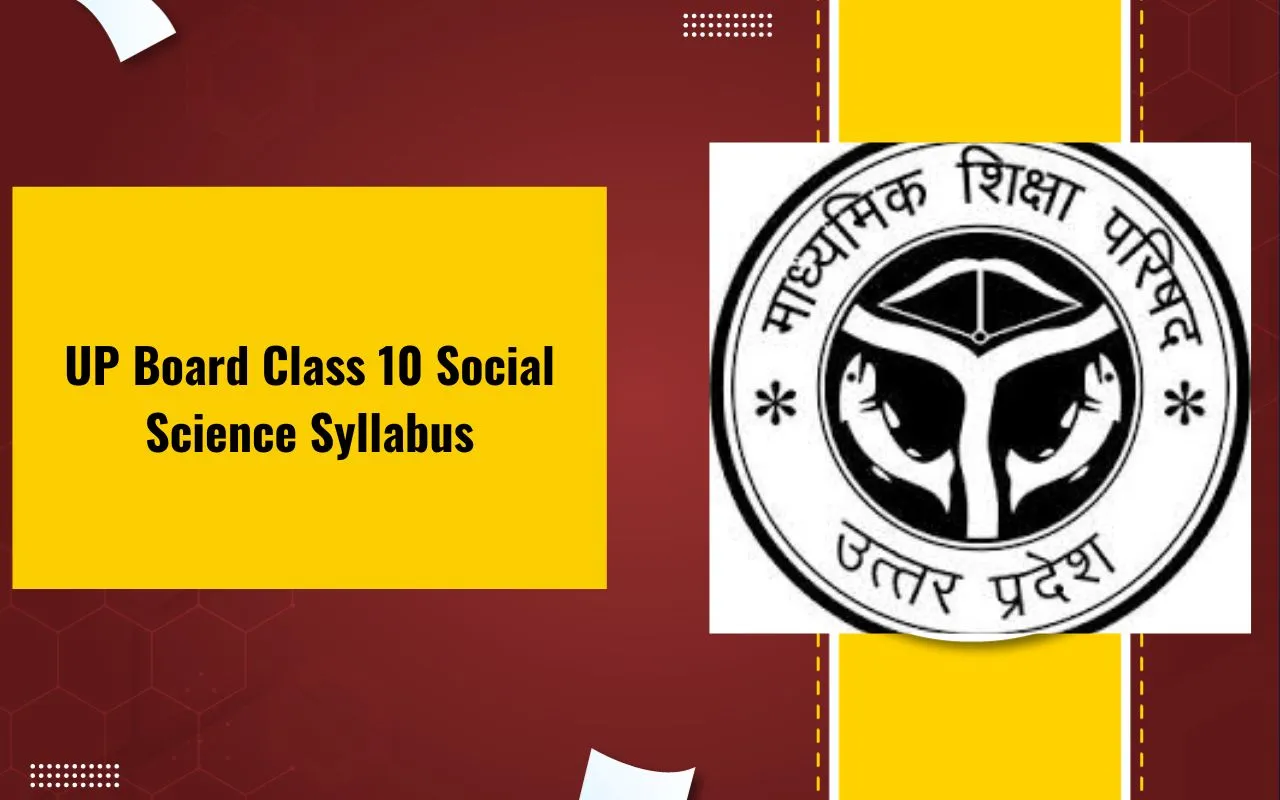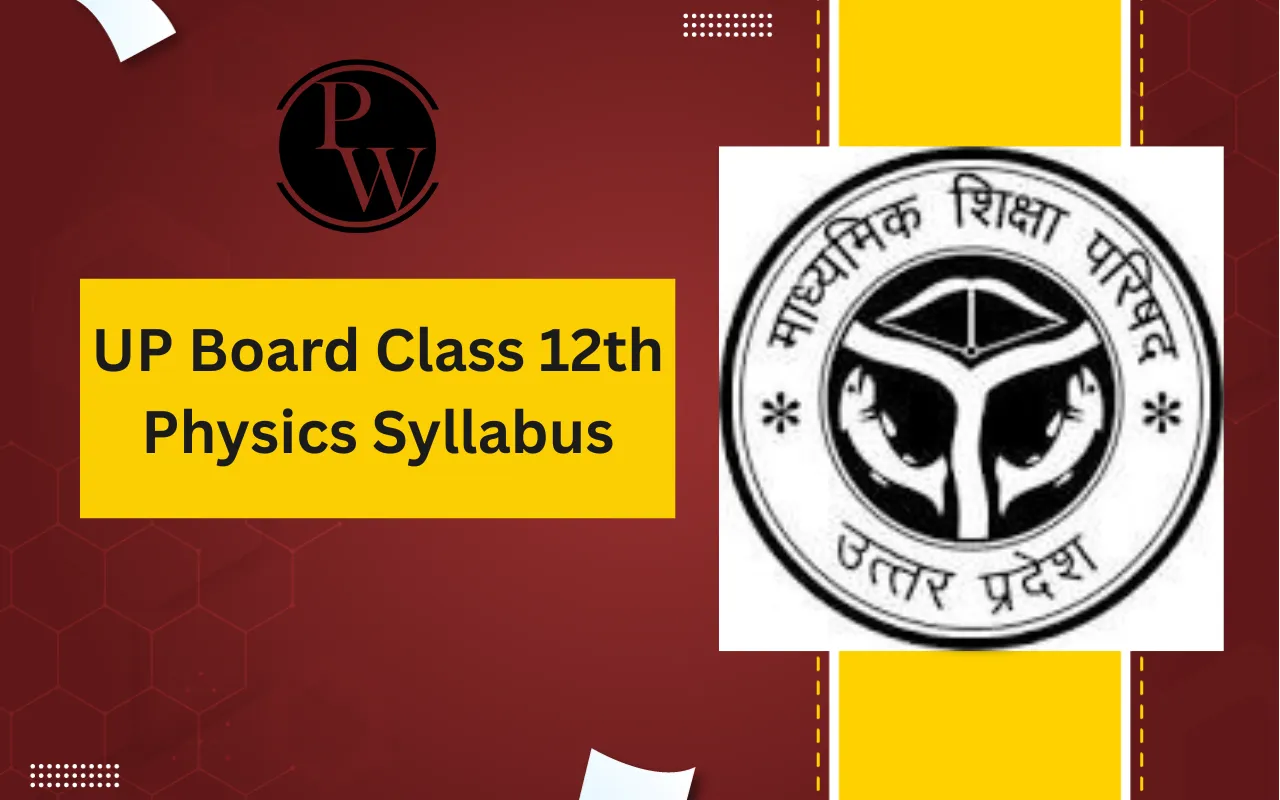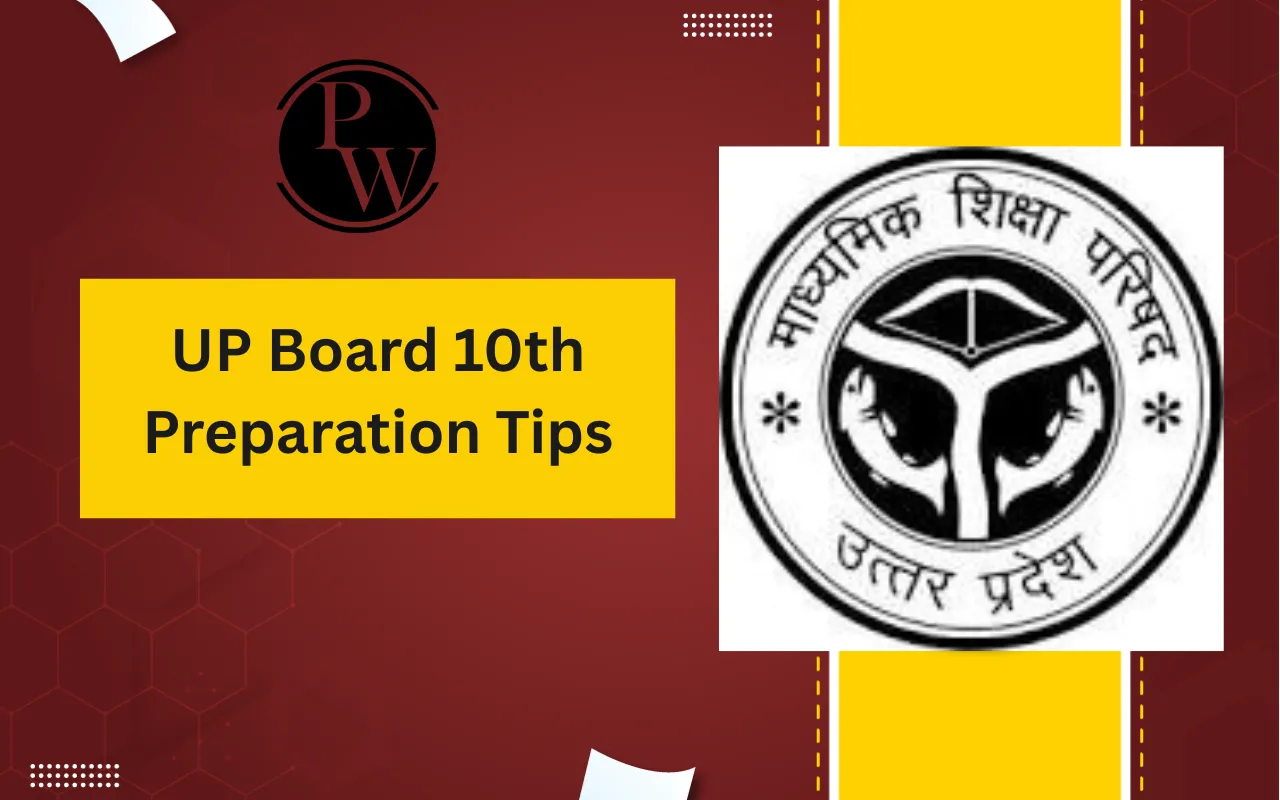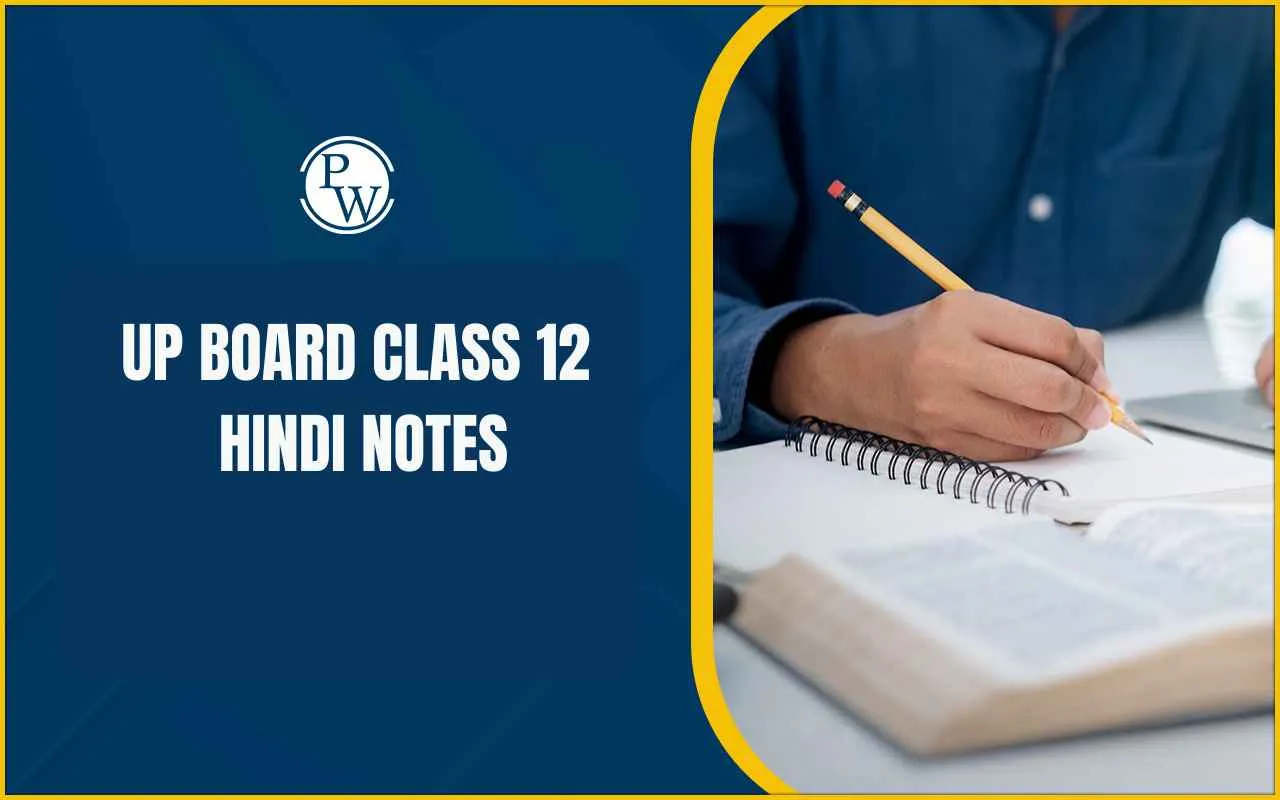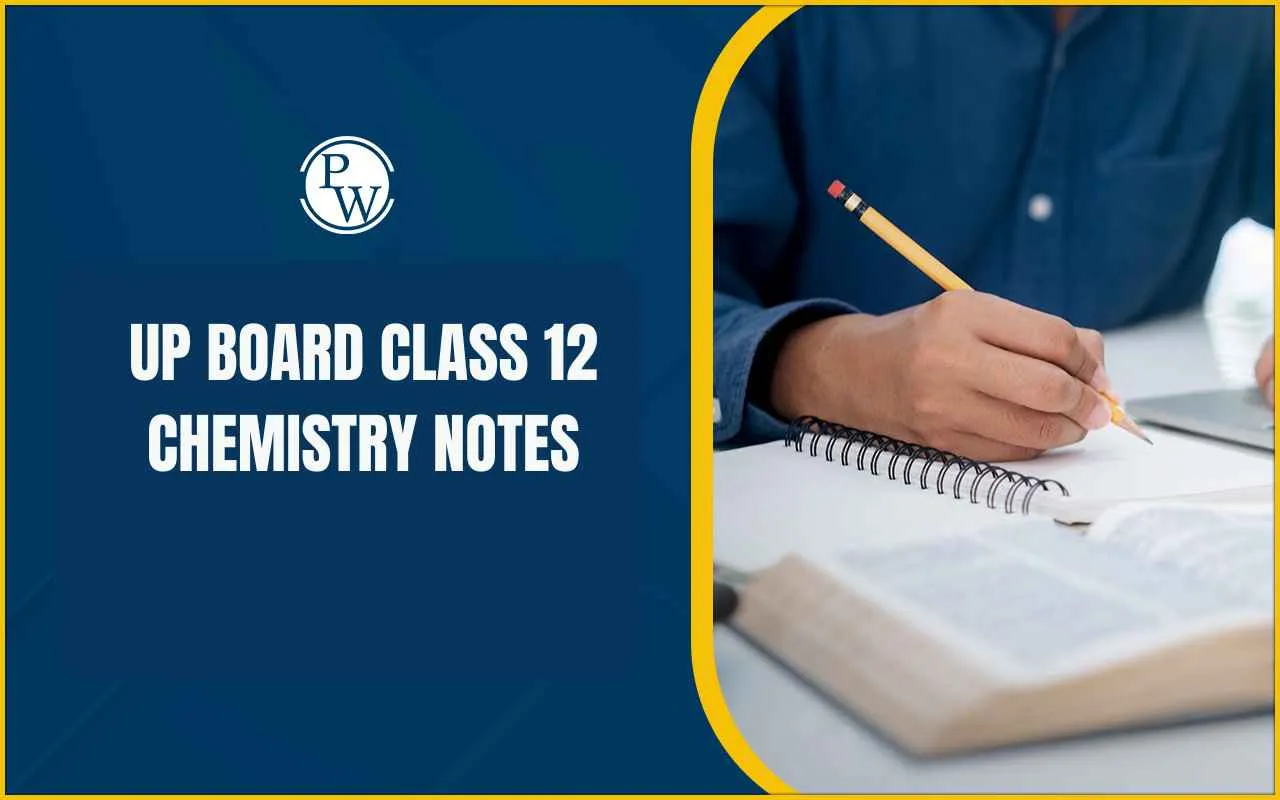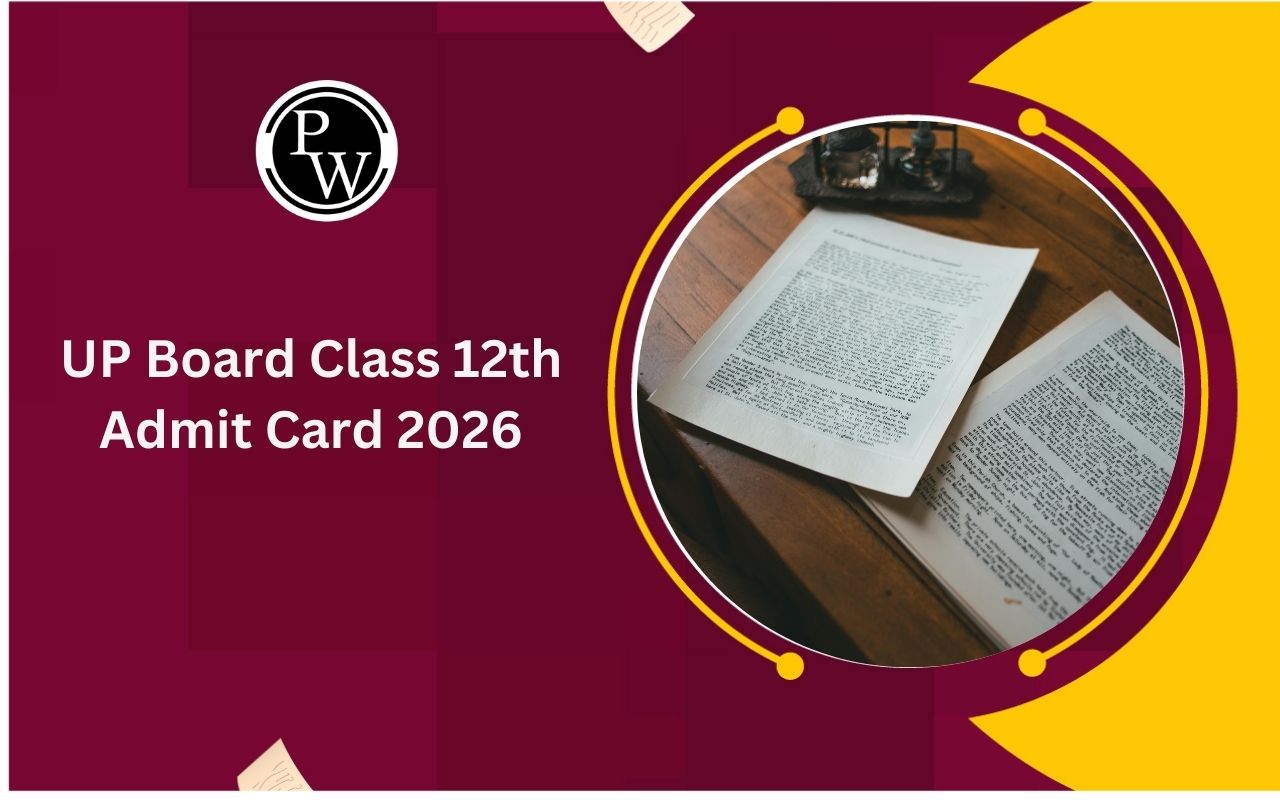
UP Board 11th Exam Preparation Tips 2026: Class 11 is an important stage for students, especially as it sets the base for board exams in Class 12. For UP Board students, starting preparation early and staying consistent throughout the year can make a big difference.
Instead of rushing through topics before the exams, students should focus on understanding the syllabus, practicing questions regularly, and building strong fundamentals in each subject. With the right study plan, revision methods, and practice, scoring well in the Class 11 final exams becomes much easier.
UP Board Class 11 Exams 2026 Highlights
UP Board Class 11 exams set a foundation for Class 12th board exams. This makes it important for students to understand the exam pattern and the UP Board Class 11 Syllabus to be able to begin their preparation with proper planning. Here’s the UP Board Class 11 Exam Pattern 2026:
|
UP Board Class 11 Exam Pattern 2026 |
|||
|
Subject |
Theory Marks |
Practical Marks |
Total Marks |
|
Biology |
70 |
30 |
100 |
|
Chemistry |
70 |
30 |
100 |
|
Physics |
70 |
30 |
100 |
|
Geography |
70 |
30 |
100 |
|
Computer |
60 |
40 |
100 |
|
English |
100 |
— |
100 |
|
Mathematics |
100 |
— |
100 |
|
History |
100 |
— |
100 |
|
Hindi |
100 |
— |
100 |
UP Board 11th Exam Preparation Tips 2026
Here are some common UP Board 11th exam preparation tips you must follow in order to score well in the academic exam:
Tip 1: Students must download the official syllabus from the UP Board website and analyze the exam pattern, number of questions, and distribution of marks to begin their preparation.
Tip 2: The UP Board follows the NCERT curriculum. Students must refer to the NCERT textbooks for their subject-wise preparation. NCERTs are aligned with the board pattern, explaining every concept in simple language with inclusion of examples and diagrams.
Tip 3: Students should focus on understanding key concepts rather than memorizing them. Once the concept is clear, it becomes easier to remember it and apply during the exam.
Tip 4: Maintain a separate notebook for definitions, theorems, formulas, and short notes as it can help in quick revision.
Tip 5: Students should solve previous years’ papers and model test papers as this helps to identify frequently asked questions, improve speed and accuracy, and assess preparation level.
UP Board 11th Subject-Wise Preparation Tips
To perform well in Class 11, students must follow subject-specific strategies. Each subject requires a different approach. A consistent study plan, understanding of concepts, and regular revision are essential for scoring good marks.
UP Board 11th Maths Preparation Tips
Mathematics requires both conceptual understanding and problem-solving practice. Follow these steps to score well in Mathematics:
-
Refer only to NCERT and UP Board textbooks as this will ensure you stay aligned with the official UP Board Class 11 Maths Syllabus and exam pattern. These books cover all the key concepts in a clear and structured manner, and most of the questions in the exam are based directly on them.
-
Focus on chapters like Sets, Trigonometry, Coordinate Geometry, and Statistics as they are scoring.
-
Create short notes that include important formulas and theorems which can help in quick revision.
-
Solve previous years’ papers and attempt mock tests under the three hour exam duration as it will help you identify the loopholes i.e., on which question to dedicate how much time.
-
Focus on step-by-step numerical solving as each step carries marks in the exams.
UP Board 11th Biology Preparation Tips
Biology is a theory-based subject that requires clear understanding and strong memorization of concepts. Here’s how to prepare effectively:
-
Start by reading each chapter from the NCERT and UP Board textbooks. Focus on diagrams, definitions, and scientific terms that are asked directly in the exam.
-
Topics like Cell Structure, Plant Physiology, Human Physiology, and Biological Classification carry high weightage so, revise them thoroughly.
-
Practice labeling diagrams and drawing them neatly, as questions carry marks for correct labeling and structure.
UP Board 11th Chemistry Preparation Tips
Chemistry combines conceptual understanding with formula-based problem solving. Use the following tips to do well:
-
Read each chapter attentively and understand the basic principles and reactions, especially in topics like Structure of Atom, Chemical Bonding, and Thermodynamics.
-
Maintain a separate notebook for writing all the chemical reactions, formulas, and short definitions in it. This will help in last-minute revision before the exams.
-
Practice numerical problems regularly, especially in Physical Chemistry chapters. Show step-wise solutions to get full marks.
-
Revise periodic table trends and practice reaction balancing to get accuracy in solving them.
UP Board Class 11 Chemistry Syllabus
UP Board 11th Physics Preparation Tips
Physics can be scoring with strong conceptual clarity and mathematical application. Here’s how to prepare:
-
Begin with understanding basic concepts in each chapter. Topics like Laws of Motion, Work & Energy, and Thermodynamics are important.
-
Focus on deriving formulas from concepts and apply them in numerical problems to understand their use.
-
Solve numerical problems from each topic daily and focus on SI units, proper diagram representation, and formula usage.
-
Solve sample papers and mock tests under timed conditions to improve your speed and accuracy.
UP Board 11th Geography Preparation Tips
Geography involves theory, maps, and data interpretation. Here are some tips to prepare well:
-
Study from the official NCERT and UP Board books and focus on chapters like Physical Features of India, Climate, Natural Vegetation, and Resources.
-
Highlight key terms and definitions as Geography answers require factual support.
-
Practice map work regularly, such as identifying rivers, mountains, or soils. Map questions are scoring.
-
Create chapter-wise charts or short notes to revise the characteristics of climate, rainfall, and soil types easily.
UP Board 11th Computer Preparation Tips
Computer subject tests your understanding of theory as well as practical logic. Follow these preparation tips to score well in it:
-
Focus on foundational chapters like Basic Computer Organization, Operating Systems, MS Office Tools, and Introduction to Programming.
-
Understand all technical terms and their functions as these are directly asked in one-mark or short-answer questions.
-
Practice programming logic and syntax, especially if the syllabus includes coding basics (C, Python, or HTML).
-
Make a list of important shortcut keys, definitions, and functions from each chapter for easy revision.
UP Board 11th History Preparation Tips
History is all about timelines, causes, events, and impacts. It requires regular reading and revision.
-
Focus on key themes and chapters such as French Revolution, Industrial Revolution, Nationalism in Europe, and Colonialism in India.
-
Make chronological notes of major events and keep a timeline chart to visualize the sequence better.
-
Practice writing structured answers i.e., start with an introduction, elaborate on causes/events, and end with impacts or outcomes.
-
Use headings and subheadings in your answers to organize points clearly as this improves presentation and readability and can lead to good marks in the written exam.
UP Board 11th Hindi & English Preparation Tips
Both Hindi and English requires comprehension skills, grammar knowledge, and writing ability. Here’s how you can prepare:
-
Read all textbook chapters thoroughly to understand the central theme, key characters, and overall plot. This helps in answering literature questions with more depth and clarity.
-
Practice unseen passages, letter writing, and essay formats regularly to build confidence in the writing section. Understanding the writing formats will save your time during the exam.
-
Revise grammar topics like tenses, active-passive voice, narration, and sentence structure through daily exercises. It is important to have strong grammar skills to improve both objective and writing sections.
-
Learn the meanings of difficult words from each chapter and try to use them in your own sentences. This improves vocabulary and helps in answering interpretation-based questions more effectively.
UP Board Class 11 English Syllabus
How to Use the UP Board Class 11 Syllabus for Preparation?
The official Class 11 syllabus of UP Board is structured unit-wise and gives complete clarity on what to study. Students should go through the entire syllabus and divide time for each chapter based on difficulty and marks allocation.
Use the syllabus to make a study plan and allocate time to each subject based on the difficulty of the concepts and marks distribution. You can use the syllabus to keep a track of your performance.
UP Board Class 11 syllabus 2025-26 helps students identify high-scoring topics, important practical components, and overall exam pattern.
UP Board 11th Passing Marks
Each subject in Class 11 is conducted for 100 marks. To pass the exam, a student must score a minimum of 33% in both theory and practicals. In most of the subjects, the written exam carries 70 marks and 30 marks for practical assessment is allotted.
If a student fails in one or two subjects, the school may conduct internal assessments or offer improvement opportunities based on school policy. Students should consult their school for guidance in such cases.
UP Board 11th Exam Preparation Tips 2026 FAQs
What is the passing marks for up board class 11?
What are the subjects in up board 11?
Is English compulsory in UP Board class 11?
Is UP Board 500 or 600?
How to study for the 11th exam?


